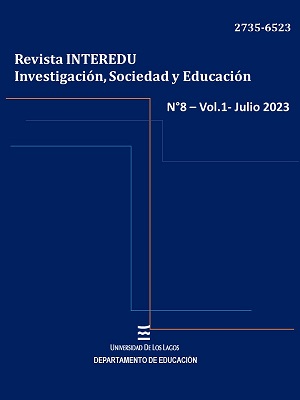Curricular contextualization for inclusive education: representations and teaching experiences
Main Article Content
Abstract
The national curriculum is one of the main public policies of the Chilean system, therefore, it is essential to research its design and its implementation, in terms of both, inclusion and pedagogical practice. The objective of this research is to understand the representations and pedagogical experiences of curricular contextualization for the inclusion on primary education teachers. This study is framed in the interpretative paradigm focused on a qualitative research methodology to explore such representations, and the experiences of teachers over inclusion, the national curriculum, and its possibilities of contextualization. This research has studied a group of 7 teachers from a school in the Independencia district, in Chile, well known for its wide cultural range of students. The results of this study reveal that curricular contextualization is a fundamental pedagogical practice to face the challenges of inclusion in education. This research has been able to unveil the absence of policies for curriculum development to validate autonomy upon teachers and ownership in the generation of relevant and meaningful learning opportunities. It is therefore recommended that public policies focus on two key areas: teacher training and improvement of teaching skills; as well as on arrangements for the deployment of technical support.
Article Details

This work is licensed under a Creative Commons Attribution-NonCommercial 4.0 International License.
